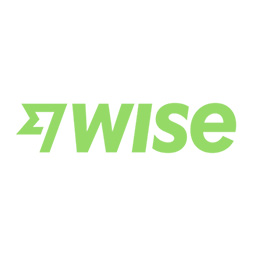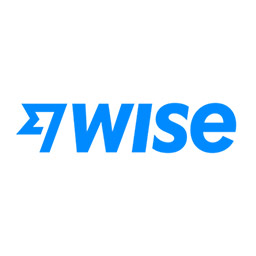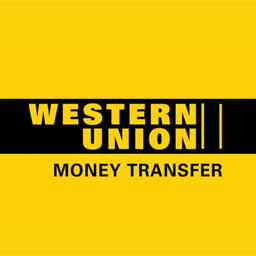SWIFT is an international messaging network used by Japanese banks and other financial institutions in Japan to exchange sensitive payment information for transactions in Japan. The SWIFT system uses a standard system of codes to transfer money from one country to another including Japan. Each Japanese SWIFT member bank in Japan is assigned a unique code, which is usually eight or 11 characters long. These codes can be found online at the website of each Japanese bank. You can also look up your bank's Japanese SWIFT code on the main SWIFT website available in Japan.
Japanese SWIFT transfers can be made in almost any currency including JPY. You will need the Japanese SWIFT code of the bank of the recipient in Japan. Then, you can enter your bank's Japanese SWIFT code and send money. The money will arrive at its destination from Japan in the currency of your choice. You can then check the status of the transfer at any time online with your Japanese SWIFT service provider.
 Visit Wise Multi-Currency Account
Visit Wise Multi-Currency Account
Used By: 11000000
Currencies Available: 54
Transfer Fees: 0.5%-1%
Payment Methods: Bank transfer, debit card, credit card, SOFORT transfer
iOS App : yes, Android App : yes
LiveChat:
Min Transfer: 1 USD
Max Transfer: 1000000 USD/transaction/day (personal), 3000000 USD/transaction/day (business)
Year Founded: 2011
 Visit Remitly
Visit Remitly
Used By: 3000000
Currencies Available: 63
Transfer Fees: 0-3.99$
Payment Methods: Bank transfer, credit/debit card
iOS App : yes, Android App : yes
LiveChat:
Min Transfer: US$1.00
Max Transfer: US$20,000.00
Year Founded: 2011
 Visit Wise
Visit Wise
Used By: 11000000
Currencies Available: 54
Transfer Fees: 0.5%-1%
Payment Methods: Bank transfer, debit card, credit card, SOFORT transfer
iOS App : yes, Android App : yes
LiveChat:
Min Transfer: US$1.00
Max Transfer: US$1,000,000 (varies based on currency)
Year Founded: 2011
 Visit Wise Business
Visit Wise Business
Used By: 11000000
Currencies Available: 55
Transfer Fees: 0.5%-1%
Payment Methods: Bank transfer, debit card, credit card, SOFORT transfer
iOS App : yes, Android App : yes
LiveChat:
Min Transfer: 1 USD
Max Transfer: 1000000 USD/transaction/day (personal), 3000000 USD/transaction/day (business)
Year Founded: 2011
 Visit Western Union
Visit Western Union
Used By: 15000000
Currencies Available: 38
Transfer Fees: up to 3%
Payment Methods: Cash, bank transfer, debit card, credit card (varies from country)
iOS App : yes, Android App : yes
LiveChat:
Min Transfer: $1.00
Max Transfer: $10,000.00 (varies)
Year Founded: 1851
 Visit MoneyGram
Visit MoneyGram
Used By: 150000000
Currencies Available: 46
Transfer Fees: 1.99$
Payment Methods: Bank transfer, debit/credit card, cash
iOS App : yes, Android App : yes
LiveChat:
Min Transfer: $1.00
Max Transfer: $10,000.00 (varies)
Year Founded: 1940
 Visit Small World
Visit Small World
Used By: 15000000
Currencies Available: 54
Transfer Fees: 1%-2%
Payment Methods: Bank transfer, credit/debit card
iOS App : yes, Android App : yes
LiveChat: yes
Min Transfer: US$1.00
Max Transfer: Varies (US$2,000.00 for card transfers)
Year Founded: 2005
 Visit WorldRemit
Visit WorldRemit
Used By: 5000000
Currencies Available: 77
Transfer Fees: 0.99$-3.99$
Payment Methods: Bank Transfer, Debit Card & Credit Card.
iOS App : yes, Android App : yes
LiveChat: yes
Min Transfer: 1 USD
Max Transfer: 9000 USD
Year Founded: 2010
 Visit Ria
Visit Ria
Used By: 61000000
Currencies Available: 96
Transfer Fees: 5$-35$
Payment Methods: Bank transfer, debit/credit card, cash
iOS App : yes, Android App : yes
LiveChat: yes
Min Transfer: None
Max Transfer: US$2,999.99 / day
Year Founded: 1987
 Visit Azimo
Visit Azimo
Used By: 500000
Currencies Available: 139
Transfer Fees: 2.99%
Payment Methods: Bank transfer, debit/credit card, SOFORT, iDeal
iOS App : yes, Android App : yes
LiveChat:
Min Transfer: £10.00
Max Transfer: £250,000.00 (SWIFT), £12,000.00 (card)
Year Founded: 2012
 Visit Western Union Singapore
Visit Western Union Singapore
Used By: 150000000
Currencies Available: 38
Transfer Fees: up to 3%
Payment Methods: Bank deposit, cash pick-up, mobile wallet
iOS App : yes, Android App : yes
LiveChat: yes
Min Transfer: S$1.00
Max Transfer: S$10,000.00 (can be even lower depending on the currency)
Year Founded: 1851

Japanese SWIFT transfers are processed through an intermediary bank in Japan. These intermediaries are places where two banks have commercial accounts. For example, if Adams bank wants to transfer money to Isabellas bank, it sends a Japanese SWIFT message to the Japanese sendee Bank . The sender Bank in Japan then finds the appropriate intermediary bank and posts the payment to Isabella. The process takes 3-5 business days in Japan in most cases, and may involve fees including currency conversion fees if converting JPY or any other currencies in Japan.
The costs associated with sending money through Japanese SWIFT are significant, especially if the amount of money being transferred from Japan is small. This is because the intermediary banks in Japan levy their own fees. Most Japanese banks, however, allow the Japanese or international recipient to pay these fees. The amount of money sent and received can vary greatly between Japanese and international banks, and Japanese banks are not always willing to provide guidance on timing. That's unfortunate, but if you are sending money internationally from Japan, you will want to be sure to consider all of the costs before choosing a Japanese SWIFT service provider.
To send a Japanese SWIFT transfer, you will need the following information. The name and address of the recipient you are sending money too from Japan, along with their bank account number and currency, are all needed to complete the Japanese SWIFT money transfer. The bank account number, or IBAN, will depend on the destination country outside of Japan. You can also use a Japanese SWIFT code to identify the bank if transfering domestically in Japan. Once you have these two pieces of information, you are ready to send the funds from Japan using SWIFT.
You will also need the Japanese SWIFT code of the recipient. This code will identify the Japanese or international bank account of the recipient. You can find the Japanese SWIFT code of the recipient's bank by consulting your recipient's Japanese or international bank directly. Alternatively, you can use an online Japanese SWIFT code finder. After you have located the Japanese SWIFT code, you will need the recipient's account and sort code information, before sending money from Japan.
To transfer money internationally using SWIFT in Japan, you will need to pay a Japanese SWIFT transfer fee. In most cases, the Japanese bank will charge you a percentage of the amount of the payment. The cost of sending money through Japanese SWIFT depends on the destination country and the exchange rate. The more Japanese intermediary banks there are, the higher the cost, the longer it takes to receive money from Japan, and the greater the risk. Because Japanese SWIFT is a cooperative society owned by member banks internationally and in Japan, members are required to pay a one-time membership fee and a small annual fee.
Once you send a Japanese SWIFT payment, it will travel through a network of Japanese and worldwide banks. Once it arrives at its first correspondent bank, the details Japanese money transfer details are reviewed, processed, and deposited into the recipient's bank account in or outside Japan. The entire process usually takes two to five working days, depending on the bank's cooperative nature to banks in Japan. To make Japanese SWIFT transfers faster, you can use the paid Japanese SWIFT acceleration service. You can send and receive your money in just a few days, but the process is a little slower than other payment methods available online in Japan.
With the recent rise in cyberattacks in Japan, the financial industry has become more concerned about the security of sending payments from Japan. While Japanese SWIFT payments are largely secure, payment networks in Japan can have many links, creating opportunities for fraud or corruption. To help make Japanese payments more secure, the Japanese SWIFT organization has instituted security controls and fraud prevention functionality. These measures are effective in reducing the risk of fraud for Japanese money transfers.
To make a Japanese SWIFT payment, a financially regulated bank must be involved in the money transaction in Japan. This middleman is the correspondent bank in or outside Japan, which must maintain a commercial relationship with the recipient financial institution in or outside Japan. Third-party services cost additional fees and add to the SWIFT money transfer processing time, when sending money from Japan. Additionally, the more intermediary banks there are, the more expensive the Japanese money transaction is. Since Japanese SWIFT is used by more than 11,000 organizations in more than 200 countries including Japan, it can be used to transfer money between nearly any two countries.
SWIFT transfer fees in Japan are usually 3-4% of the transfered amount. There are outgoing and incoming SWIFT transfer fees in Japan, a Japanese currency conversion fee, and a Japanese SWIFT tracing fee. The Japanese SWIFT system is used by the most trusted financial institutions all over the world. If you send money through a Japanese bank, it will almost certainly go through the Japanese SWIFT network in Japan. However, if you transfer money through a third party without a Japanese bank, you might still go through the SWIFT network in Japan. some international banks outside Japan are notorious for slow deliveries and high fees, but some companies offer a safer way to transfer Japanese funds internationally.
You can save money in Japan by completing repeating wire transfers. For example, if you send money to the same destination every few weeks from Japan, you can sign up for a frequent money sender account in Japan. Alternatively, you can also opt to send money through online banking in Japan. But Japanese residents must remember to keep in mind that you may pay more if you do this over the phone in Japan.
A Japanese SWIFT code is an eight to eleven-digit alphanumeric code used by financial institutions both in Japan and internationally to identify bank and money accounts to their Japanese owners. It is assigned according to an algorithm based on three parts in Japan: the institution, country, and local location. If more than one bank branch exists within a certain area, the 11-character code will be used to designate the specific branch that you are sending money to from Japan.
If you have ever received a Japanese SWIFT code, you probably have a BIC. A BIC is another acronym for Business Identifier Codes in Japan, and these codes are often used for Japanese bank transfers internationally. In fact, they are so widely used, they're used interchangeably. Thankfully, Japanese SWIFT codes have become an essential tool in today's modern world. For Japanese residents who have never used the Japanese SWIFT system, it is simple and easy to get started.
If you have ever tried to send a large sum of money in Japan from one country to another, you have probably heard of Japanese SWIFT. This service is based on a system that identifies accounts and customers on the Japanese and global bank messaging network. Each client is assigned a unique Japanese SWIFT code. The benefits of using this system over other methods is its speed and that it is safer than other international money transfer methods available in Japan.
Japanese SWIFT is not free. To send or receive money, big banks charge about 3% to 5% of the amount being transferred FROM Japan. Because the exchange rate depends on the amount being transferred, this fee can become a significant factor TO Japanese money senders. One of the main advantages of Japanese SWIFT is its high safety. While other systems have limitations in the currencies they can send and receive, Japanese SWIFT has no such limits. Even though Japanese SWIFT is widely used, it is still important to know that the amount of money you can send and receive will be regulated by the laws of Japan and the country you are sending too. some countries outside Japan have sending limits of 5000 JPY.
Although the benefits of Japanese SWIFT are many, you may be wondering what the drawbacks are in Japan. Despite being among the most popular methods of foreign payments in Japan, the system is not without drawbacks. First, it costs quite a bit of money for Japanese people to send money using SWIFT. This commission amount when sending money from Japan, includes the services of the Japanese sending bank and those of the financial institutions involved. In addition, the number of intermediaries involved in a transaction increases the cost to Japanese senders, which SWIFT calculate before sending the money from your account in Japan.
The biggest advantage of using the Japanese SWIFT system is its speed and safety. SWIFT is good for sending large amounts of money, as the SWIFT banking is highly regulated and monitored. For smaller transfers of under 500 JPY, other online money transfer systems are a better option for Japanese clients. This is because each international money transfer system available in Japan operates with its own tariff network, which is dependent on the destination country outside of Japan and the currency of the transaction.
Japanese SWIFT works by offering a centralized store-and-forward mechanism and some transaction management. The Japanese sender bank A formats a Japanese money transaction message according to specific standards and sends it securely using the SWIFT network in Japan. The Japanese SWIFT netword then makes sure that it reaches its destination bank in or outside Japan, in a secure and reliable manner. The Japanese SWIFT network uses high-grade hardware and software in Japan and all over the world to guarantee that tranactional messages from the money sender in Japan are secure and authentic. To make sure that messages are sent and received in a secure manner, the Japanese and international banks tie their BIC codes to each other.
To make international money transfers faster from Japan, Japanese SWIFT works as an intermediary bank between two banks. The intermediary bank facilitates the transfer of money, which is why it costs a fee to Japanese clients. Aside from the intermediary bank, the Japanese SWIFT network also allows for currency exchange, allowing for more efficient international money transfers. Using standardized IBAN (International Bank Account Number) codes, Japanese SWIFT is essential to international payments in Japan.
Japanese SWIFT Payments allows banks to send money to almost any bank in the world not just banks in Japan. Imagine that a company needs to send 100,000 JPY or other currency to a supplier in another country. They would instruct their Japanese bank to transfer the money using the correct currency from Japan to the recieving supplier in another country. They would give the bank their Japanese SWIFT code, the beneficiary's name, and the amount they wish to transfer. This would send a secure payment in a matter of seconds, that is fully processed in 1-5 days from Japan.
The answer varies by Japanese and international bank, but it is important to understand the details of the transfer process in Japan using SWIFT. In general, Japanese SWIFT transfers take two to five business days. While a Japanese SWIFT payment may seem instantaneous, it takes time to complete because it needs to be processed through multiple intermediaries in Japan and all over the world.
Japanese SWIFT is an international payment system that has become the dominant way to send and receive money for Japanese residents, in over 200 countries worldwide. Japanese SWIFT payments generally take one to five business days to complete, but this can be extended by fraud prevention procedures with Japanese and international intermediary banks involved. So it is important to check your destination's Japanese SWIFT payment history before you send money overseas.
Since the 1970s, the phrase "wire transfer" in Japan has been used to describe to the processes that may be utilized to move money from one account to another, whether those accounts are located locally in Japan or worldwide. SWIFT transfers only decribe moving money using the SWIFT network in and outside on Japan.
A Japanese SWIFT transfer is a secure payment method that allows funds to move from one bank to another without requiring a middle-man. The sender initiates the Japanese SWIFT transaction, providing bank account information to the receiving bank and confirming payment from the Japanese sendee. The transfer can take a few hours or a few days, depending on how far the money has to travel outside of Japan.
You can perform a bank transfer using SWIFT online or in a bank branch in Japan. You will need to verify your Japanese ID, and have the SWIFT transfer reciepiants name, address and bank info. Japanese clients have been using SWIFT as a international payment network that facilitates secure international wire transfers in Japan for many decades. The Japanese SWIFT payment network allows Japanese banks to send and receive payments worldwide. Banks send messages using the Japanese SWIFT system, which enables them to instantly identify one another. The Japanese SWIFT network unites more than 8000 institutions in 208 countries. Japanese SWIFT acts as a middleman in banking, stock and brokerage transactions.
You can choose the SWIFT method of payment you prefer. Banks charge a fee for Japanese SWIFT transfers in Japan, but there are some services that may offer more competitive money transfer fees in Japan online. Its important to know how much of your Japanese money transfer using SWIFT disapears to fees. Knowing your currency conversion and transfer fees in Japan , make it easier to predict how much money your recipient will get. The biggest cost for Japanese SWIFT transfers is the exchange rate. Since Japanese SWIFT transactions involve multiple intermediary banks, they can take two to five days. The efficiency of the Japanese SWIFT payment depends on the cooperation of the correspondent banks.
If you are looking to transfer money internationally from Japan, you should know that there are some limitations to Japanese SWIFT transfers. These include the length of the transfer, the exchange rate when converting JPY or any other currency, and the cost of the intermediary bank fees in or outside Japan. Some money transfer companies do not charge any fees at all on some transfers if both the Japanese sender and recipient use the same money service. Other money companies in Japan will charge you a nominal fee to use their services. Ultimately, the cost of Japanese SWIFT transfers comes down to the exchange rate. These are not standardized and Japanese banks tend to choose the worse exchange rate for the transfer.
If you are using the SWIFT protocol in Japan, you will need a correspondent bank with a commercial relationship between the Japanese sending and receiving banks. This third-party service will cost you extra and delay the payment in or outside Japan. Since Japanese SWIFT is a cooperative society owned by members, the cost is low. The annual fee varies by member class. You should look for a financial institution with a branch in Japan to make a money transfer.
Japanese SWIFT transfer senders have the ability to seek a trace on your transaction in or outside Japan by entering the SWIFT code associated with your Japanese bank in the event that your transfer is not delivered on time. A SWIFT identification number is required for a Japanese bank to send a wire transfer, and it is the same number that is required for the Japanese bank to sign off on other types of transactions. Your Japanese bank may charge a fee for SWIFT transfer tracing in Japan.
Although Japanese SWIFT payments are highly secure and reliable, it is easy to track one of these transfers. Because the Japanese SWIFT network is comprised of thousands of Japanese and international banks, the banks that make up the SWIFT banking network are all required to provide regular updates on payment activity in Japan.
The process of international money transfers relies on the Japanese SWIFT network. Banks from different countries exchange currency via this system. These banks exchange money using their commercial accounts. The banks that accept Japanese SWIFT money transfers charge a fee for this service. However, if you are not a bank, there is no need to worry. You can simply follow the Japanese SWIFT code for a specific transaction and see when it was sent.
The Japanese SWIFT code is an eight to 11-character code assigned to each financial institution. This code is assigned by Japanese SWIFT to facilitate international payments. This code is unique to that institution in Japan, and is also commonly referred to as the IBAN or Bank Identifier Code. Some Japanese banks automatically list this code on your statements, but you may be able to find it on your own by visiting your official banks website in Japan.
Once you have created your account in Japan and set up your preferences, the next step is to set up your Japanese SWIFT credentials. Your Japanese account credentials are created with your banking institution in Japan. Once you have gotten your account, go into the "Add Funds" section and paste in the Japanese SWIFT code of your bank. You will need to provide your Beneficiary Account name, IBAN, and Japanese SWIFT code, or Japanese SWIFT code. You may be asked to provide a PIN code that is sent to your phone in Japan, via txt message.
Japanese SWIFT money services make Their money by charging Japanese clients based on amount of money sent and currency conversion fees. The charges are determined by the volume of Japanese SWIFT usage and commercial policies of the Japanese and international banks involved. Additionally, Japanese SWIFT money transfers can be more expensive than some online money transfer sites in Japan. Most money transfer fees in Japan come when money is converted into the target currency. So you will probably be able to find a better currency exchange rate than your Japanese SWIFT bank.
Japanese Currency exchange rates vary greatly from provider to provider in Japan. While zero-transfer-fee currency exchange providers tend to offer lower exchange rates in Japan, you may end up paying more in fees. Some providers have a zero-transfer-fee policy on certain transactions in Japan, that allows you to transfer more money. It is better to choose a money transfer service with a lower exchange rate in Japan, that supports sending money to your recipients country.
When comparing transfer rates in Japan, be sure to check what the exchange rate is for the currency you are sending from Japan. Converting JPY to another currency can be costly, if you dont check. Every transfer service has slightly different exchange rates for residents in Japan. Always compare the exchange rates against a standard rate, againt your JPY before deciding which one is the most affordable in Japan. A simple currency converter is available on Google, or on many of the best money transfer sites available online to Japanese clients in Japan. You will have to know the local currency of the country you are sending to outside of Japan.
We list reviews for the best money transfer services for sending money to Japan you can check out some of the best Japan money services below.
If you would like to see Wise Multi-Currency Account compared against some of the best Wise Multi-Currency Account alternative Japan money tranfer services available right now you can do so by clicking on the links below.